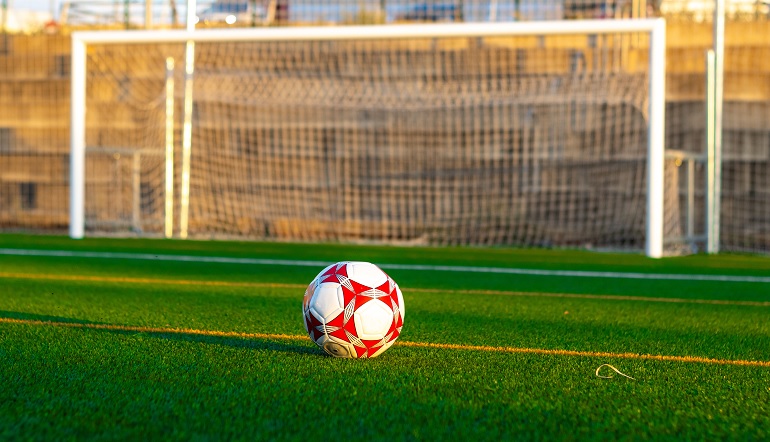College Students Who Bet on Sports Face Big Risks in Pursuit of Fast Cash
In recent years, sports betting has surged in popularity, especially among college students who view it as both a thrilling pastime and a potential source of quick cash. With the 2018 Supreme Court decision that legalized sports betting in 37 states, including Illinois, access to gambling platforms has become almost effortless, especially through convenient mobile apps. While this phenomenon presents an enticing opportunity for some, it also harbors significant risks that can lead to troubling consequences, including gambling debts that add to the already heavy burden of student loans.
The Allure of Quick Cash
The temptation of quick financial gains has captivated the youthful demographic on college campuses. Loyola University senior Ryan Hensley affirms this trend by stating that sports betting is not only a social activity but also a way for students to cover their living expenses. Some individuals have reported paying their rent with major payouts from relatively small bets, creating an appealing narrative that combines luck with monetary relief.
"It’s insane," Hensley says, referring to the variety and frequency of bets placed by students. "People are betting on anything from animal races to international events. It’s all about the thrill of having something at stake during a game."
The Rising Risk of Addiction
However, the thrill of early wins can obscure the potential downsides of gambling. Experts warn that initial successes can create an illusion of control, luring individuals into a pattern of addictive behavior. Anita Pindiur, executive director of a local addiction treatment facility, notes that her center has seen a 35% increase in patients under 30 since the rise of sports betting. According to her, many young adults are coming forward for help with gambling problems, reflecting a broader epidemic fueled by the accessibility of online gambling.
“It’s not a substance you can smell or see, so it becomes easier to downplay,” Pindiur explains. The lack of visible consequences can make gambling seem less risky than drugs or alcohol, which creates a dangerous cycle for many students.
Legislative Responses and Regulation
The increase in gambling, along with the associated risks, has prompted calls for regulation. Proposed federal legislation known as the SAFE Bet Act seeks to impose limits on how much bettors can wager and how frequently they can place bets. This proposed legislation highlights growing concerns about the addictive nature of gambling and the marketing strategies employed by betting companies, which have begun to resemble the tactics of slot machine gaming with micro-bets on minute events.
Despite these calls for greater regulation, the American Gaming Association has opposed the SAFE Bet Act, arguing that it could hinder the growth of a burgeoning industry that has also created jobs and generated tax revenue.
The Impact on College Culture
The presence of sports betting has transformed social dynamics on campuses where discussions about gambling frequently dominate casual conversations. Noah Henderson, the director of sport management at Loyola University, points out that student engagement peaks when topics about sports gambling arise. "It makes watching games more exciting when you have something tangible at stake," he says.
Yet, this excitement often translates into a blurring of boundaries regarding what constitutes responsible gambling. Many students may not recognize the serious potential consequences until it is too late, leading them to rely on credit cards for betting—a practice that Hensley outright condemns.
Personal Accounts and Revelations
Rob Minnick, a content creator and former college gambler, shares his harrowing experience of addiction. He recalls how gambling became entwined with his social life at Georgetown University. His turning point came one fateful day when he accrued substantial debt within just 12 hours, leading him to reevaluate his life choices and ultimately seek recovery. Minnick emphasizes that while not everyone who gambles will become addicted, the risk is significant.
“The gradual shift towards gambling becoming more akin to slot machines raises alarms,” he notes. With prop bets and micro-betting, the line is increasingly blurred between traditional sports betting and rapid, impulsive gambling behaviors.
Conclusion: The Need for Awareness and Support
As gambling continues to infiltrate college culture, it is crucial for students and faculty alike to recognize the serious risks involved. Educational institutions must engage in conversations about responsible gambling practices while providing resources for those in need of help. The call for regulation also underscores the necessity for a balanced approach that protects young adults from exploitative gambling practices.
Students should understand that while the allure of quick cash is enticing, the reality can lead to stacks of debt, emotional distress, and a compromised college experience. For those who find themselves or their peers in trouble, support is available through helplines like 1-800-GAMBLER, which offers confidential assistance for individuals struggling with gambling addiction.
The shared responsibility among peers, educators, and lawmakers is essential to fostering a healthier environment that prioritizes well-being over the fleeting thrill of sports betting. As the landscape of gambling continues to evolve, vigilance and awareness must keep pace to safeguard future generations.












